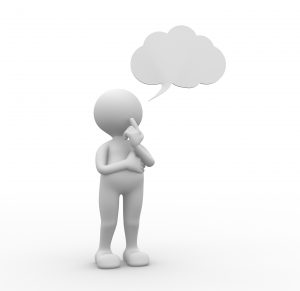Few studies have investigated the efficacy of alcohol treatments in the Traumatic Brain Injury (TBI) population therefore evidence must be extrapolated from the general population. Obviously any intervention will need to take account of the individual’s cognitive abilities and tailored to their level of cognitive function. Data from the general population demonstrates that alcohol-based ‘brief interventions’ can be useful and cost-effective. They consist simply of identifying an alcohol problem and discussing the benefits of change.
A motivational interviewing style maximises the impact of intervention. This is a  non-judgemental style of questioning which avoids confrontation and lecturing but helps the individual weigh up the pros and cons of change. The aim is for the individual to make their own arguments for change. In the context of TBI the individual would be encouraged to consider the role alcohol played in the acquisition of their injury and the negative consequences ongoing use will have for recovery. If the individual continues to drink, it can be particularly helpful to promote self-recording of alcohol consumption. This intervention has been shown to be associated with a greater effect in studies examining the impact of brief interventions (Mitchie et al. 2012). The individual can be directed to a variety of resources which support this, e.g. www.drinkaware.co.uk.
non-judgemental style of questioning which avoids confrontation and lecturing but helps the individual weigh up the pros and cons of change. The aim is for the individual to make their own arguments for change. In the context of TBI the individual would be encouraged to consider the role alcohol played in the acquisition of their injury and the negative consequences ongoing use will have for recovery. If the individual continues to drink, it can be particularly helpful to promote self-recording of alcohol consumption. This intervention has been shown to be associated with a greater effect in studies examining the impact of brief interventions (Mitchie et al. 2012). The individual can be directed to a variety of resources which support this, e.g. www.drinkaware.co.uk.
Brief interventions are primarily aimed at hazardous but not yet dependent drinkers. The latter generally require more sophisticated treatment. Alcoholics Anonymous should always be suggested and local meeting times are available from their website www.alcoholics-anonymous. org.uk. Attentional impairments or behavioural disturbance related to brain injury may hamper or preclude attendance. Having a friend, relative or support worker accompany the individual to the first few sessions can be helpful and they can support subsequent reflection on how the issues discussed relate to the patient. Referral to specialist alcohol problems services should be considered, directly or via the GP. Outlining the individual’s cognitive and other deficits will be of great assistance in planning treatment.
As well as psychological treatment centering on fostering motivation for change, medically led alcohol services will consider pharmacological interventions. The most commonly used medications are Antabuse, Acamprosate and Naltrexone (initiation of the former two also being possible in general practice).
Antabuse works through its aversive effect i.e. the ‘flushing response’ occurring on consumption of alcohol. It is contra-indicated in those individuals with substantial medical co-morbidity (in whom hypotension would be hazardous) or severe cognitive impairment. If an individual cannot remember they are on the drug then its use is not feasible!
Naltrexone and Acamprosate can be helpful in reducing cravings for alcohol and the latter may assist in reducing the risk that a ‘blip’ (i.e. episode of alcohol consumption) becomes a full blown relapse.
Nalmefene has also recently been licensed for the treatment of alcohol dependence. It is used in people who continue to drink, and is of assistance in reducing the amount consumed during any drinking episode. It is generally taken intermittently, when a person is likely to be in a high risk situation or experiences an urge to consume alcohol.